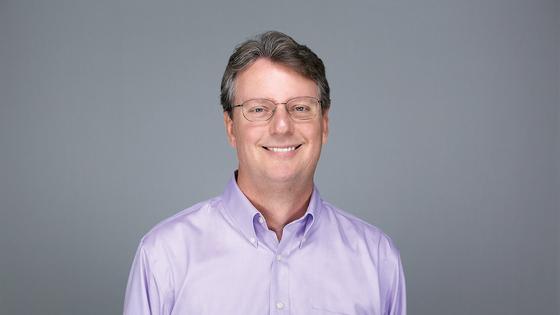Dale Johnson, the Arizona State University, on new learning formats
Dale Johnson, Director of Adaptive Initiatives at the Arizona State University (USA), tells Lectera Magazine what adaptive learning is, how it differs from classical learning, and how it can be applied.

- How did the idea of transitioning to adaptive learning come about?
We had a very specific need. Our students were struggling with math and we wanted to help them succeed. Math is one of the toughest subjects for the university students and we were losing over 40 per cent of our first-year student because they couldn't successfully finish a math class. So, we took that, and we translated that into a system that is helping our students succeed at a much higher rate.
- How can we measure the effectiveness of the adaptive learning? Is there any evidence to support its effectiveness?
40 percent of our student used to fail. Now it's only 20 percent. So, we've reduced the failure rate significantly. Our goal ultimately is less than 10 percent with fail. So, we are going to save all of those students and help them succeed by giving them good math education using an adaptive system.
- What do you think about the personalisation of learning - is it a true trend or just a flash in the pan?
Oh, that's a trend. Yeah, we found that we started with math and then moved to biology, chemistry, physics, economics, psychology and now we are doing philosophy. So, we've gone from science all the way through liberal arts. And it's working well in every discipline. So, we believe it is the future of education. And we are trying to do now is that we are trying to change the culture of our faculty, so that they understand the value of the technology.
- Which learning formats will disappear and which ones will become a reference point for all?
When I look at it there is something called a productivity paradox. If you look at history when we put technology on the top of an old process it ends up lowering productivity. So, think about 1990s, everybody was getting computers, but we were working harder without getting any more value. 1990s we started to change the processes, what we do with the computer. With the world wide web exploding, we started to gain way more value from computers. The same is now with education. Right now, we are just adding technology on the top of the teacher and it's crushing our teachers. They are unable to successfully teach anymore because they're so worried about the technology. So, we are going to think about is what we need to remove from the teaching load. And one of the things we focus on is the lecture. The lecture has always been a corner stone of education, but we don't think it's necessary anymore because we can digitize everything. We put on a video, we have it available for the student any time and anywhere. So, that kind of transformation needs to be the part of the conversation. We cannot just add technology, it won't succeed. You have to take away some of the other work.
Share this with your friends via:
Latest News

In the UK, £23 million has been allocated for the expansion of the EdTech Testbed program — pilots of educational technologies in schools and colleges.

In the US, Tuskegee University announced the launch of Tuskegee University Global Campus (TUGC) — a new online platform for distance learning.

A significant stage in the development of the alternative education system has begun in West Northamptonshire in the UK: the County Council is actively calling on parents, guardians, and trustees to participate in shaping the future of this key area.

Outwoods Primary School in Atherstone, Warwickshire, having experienced deep sadness after the loss of their famous cat, Silla, has found solace in a new pet – a Maine Coon named Aloysius O’Hara.

In modern universities, artificial intelligence, and in particular ChatGPT, is rapidly transforming from a controversial tool into a full-fledged student assistant.












 Spring skills audit: what to remove, strengthen, and “sow” in learning
Spring skills audit: what to remove, strengthen, and “sow” in learning
 9 Career Mistakes Young Professionals Make
9 Career Mistakes Young Professionals Make
 £23 million allocated for the expansion of EdTech Testbed in the UK
£23 million allocated for the expansion of EdTech Testbed in the UK
 Test: How Psychologically Mature Are You? Check Your Inner Foundation.
Test: How Psychologically Mature Are You? Check Your Inner Foundation.
 Test. Check Your Social Media Dependency Level!
Test. Check Your Social Media Dependency Level!
 Test: What Business is Right For You?
Test: What Business is Right For You?
